February 2013 | VOL. 12, NO. 2 | www.McGowan.pitt.edu
Regenerative Medicine Grows Arteries
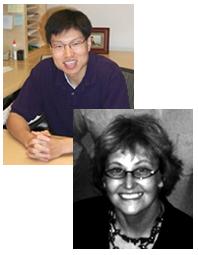 McGowan Institute for Regenerative Medicine faculty member Yadong Wang, PhD, associate professor of bioengineering at the University of Pittsburgh, has led a study that resulted in demonstrating the feasibility of growing arteries with elasticity outside the body, which are the closest to resembling natural blood vessels.
McGowan Institute for Regenerative Medicine faculty member Yadong Wang, PhD, associate professor of bioengineering at the University of Pittsburgh, has led a study that resulted in demonstrating the feasibility of growing arteries with elasticity outside the body, which are the closest to resembling natural blood vessels.
Along with Dr. Wang’s postdoctoral fellow Kee-Woo Lee and McGowan Institute for Regenerative Medicine faculty member Donna Stolz, PhD, associate director of the Center for Biologic Imaging and associate professor in the Department of Cell Biology and Physiology at the University of Pittsburgh, Dr. Wang used the smooth-muscle cells of a baboon and grew them inside a porous, rubber tube, which was then placed in a bioreactor which regularly pumped a nutrient-rich solution – much like that occurs naturally in the body. Over 3 weeks the cells grew and formed an artery-like structure, which gradually replaced the rubber tube. The structure contained approximately 20% of the elastin and 10% of the collagen typically found in a baboon vessel. This significant advance opens up new doors for future clinical tools in artery repair.
The results of the research were published in the Proceedings of the National Academy of Sciences.
SCIENTIFIC ADVANCES
Study: Biomarkers May Predict Acute Kidney Injury in Critically Ill Patients
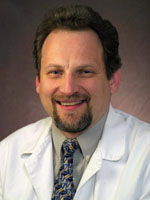 An international, multi-center study led by UPMC researchers—including McGowan Institute for Regenerative Medicine affiliated faculty member John Kellum, MD, a critical care physician at UPMC and professor of critical care at the University of Pittsburgh—found biomarkers that can tell a physician if a patient is at risk for acute kidney injury (AKI), a condition that often affects those in intensive care and can occur after serious infections, surgery, or taking certain medications. The results, now available online and published in the journal Critical Care, provide insight into the potentially deadly condition that affects up to 7 percent of all hospitalized patients.
An international, multi-center study led by UPMC researchers—including McGowan Institute for Regenerative Medicine affiliated faculty member John Kellum, MD, a critical care physician at UPMC and professor of critical care at the University of Pittsburgh—found biomarkers that can tell a physician if a patient is at risk for acute kidney injury (AKI), a condition that often affects those in intensive care and can occur after serious infections, surgery, or taking certain medications. The results, now available online and published in the journal Critical Care, provide insight into the potentially deadly condition that affects up to 7 percent of all hospitalized patients.
Existing methods of determining kidney function, such as measuring serum creatinine and urine output, may not indicate changes for several days, allowing time for significant kidney damage to occur. Biomarkers, which are naturally occurring proteins or other molecules in the blood, urine, or other body fluids or tissues, may help physicians more accurately determine the risk of AKI in critically ill patients so that early treatment can minimize progression and save lives.
“If unchecked, AKI can lead to loss of kidney function, often resulting in lower quality of life or even death. Our data show that these biomarkers provide more information than traditional tests for kidney function and give us a better understanding of what physically happens when a kidney is damaged,” said senior investigator Dr. Kellum.
AKI risk is difficult to determine because the condition is typically caused by something outside of the kidney, including sepsis, nephrotoxins, and oxygen deprivation. The study aimed to identify early markers in order to detect AKI when interventions could provide benefit. Researchers collected blood and urine samples of more than 1,000 critically ill patients in North America and Europe. The biomarkers, known as TIMP-2 and IGFB7, signal that the kidneys are stressed and not functioning properly but may still recover. They are indicators of cell damage, a key component in the onset of AKI.
“These biomarkers send an early ‘alarm’ from the site of the injury and offer a better chance at treatment that can prevent further damage,” Dr. Kellum said.
Co-authors of the study include researchers from 35 medical centers worldwide.
First International VAD Guidelines Co-Authored by McGowan Institute for Regenerative Medicine Affiliated Faculty Member
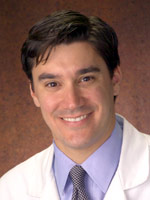 With the rapidly growing use of ventricular assist devices (VADs)—surgically implanted, portable pumps that support the failing heart in patients with end-stage heart failure—the International Society for Heart and Lung Transplantation has issued its first guidelines for the selection, implantation, and management of these life-saving devices.
With the rapidly growing use of ventricular assist devices (VADs)—surgically implanted, portable pumps that support the failing heart in patients with end-stage heart failure—the International Society for Heart and Lung Transplantation has issued its first guidelines for the selection, implantation, and management of these life-saving devices.
The guidelines, co-authored by McGowan Institute for Regenerative Medicine affiliated faculty member Jeffrey Teuteberg, MD, medical director, UPMC Artificial Heart Program, appeared in the February issue of the Journal of Heart and Lung Transplantation.
“VADs have led to improved outcomes in patients with fewer complications, while being smaller and more reliable than models developed just a few years ago,” said Dr. Teuteberg. “As more patients are implanted with these devices and supported on them for many years, it’s particularly important to apply evidence-based guidelines to their use.”
VAD implantation can give renewed life to patients with advanced heart failure who are not helped by conventional medical therapy. Each year, approximately 2,000 people in the U.S. receive a VAD, which does not replace the heart, but rather takes the blood from the weakened heart and pumps it to the body and vital organs.
“Until now, there has not been a consensus on how to manage patients supported with these devices. We hope these guidelines will highlight not only what we know, but what we don’t know about mechanical support,” Dr. Teuteberg said.
Dr. Teuteberg and his co-authors spent more than 18 months reviewing studies and conferring with peers in the medical community as they prepared the guidelines covering patient selection, intra-operative management, and post-operative care.
“VADs are no longer just for short-term therapy,” Dr. Teuteberg said. “Because the pumps are better and more patients are living longer with them, there are more chronic medical issues that we have not had to systematically address until the past several years.”
Dr. Teuteberg is an assistant professor of medicine and a member of the Heart Failure/Transplant division of the UPMC Heart and Vascular Institute, where he specializes in the care of patients with advanced cardiomyopathies, cardiac transplantation, and ventricular assist devices.
Dr. Teuteberg co-authored the guidelines with David Feldman, MD, PhD, from the Minneapolis Heart Institute; and Salpy Pamboukian, MD, MSPH, from the University of Alabama at Birmingham.
Stem Cells Found to Heal Damaged Artery in Pre-Clinical Lab Study
 In a recently published manuscript, scientists from the University of Pittsburgh Medical Center—including McGowan Institute for Regenerative Medicine affiliated faculty member Gerald Schatten, PhD, professor and vice chair of obstetrics, gynecology and reproductive sciences at the University of Pittsburgh, deputy director at Magee-Womens Research Institute, and director of the Pittsburgh Development Center—and the Texas Biomedical Research Institute have for the first time demonstrated that baboon embryonic stem cells can be programmed to completely restore a severely damaged artery. These early results show promise for eventually developing stem cell therapies to restore human tissues or organs damaged by age or disease.
In a recently published manuscript, scientists from the University of Pittsburgh Medical Center—including McGowan Institute for Regenerative Medicine affiliated faculty member Gerald Schatten, PhD, professor and vice chair of obstetrics, gynecology and reproductive sciences at the University of Pittsburgh, deputy director at Magee-Womens Research Institute, and director of the Pittsburgh Development Center—and the Texas Biomedical Research Institute have for the first time demonstrated that baboon embryonic stem cells can be programmed to completely restore a severely damaged artery. These early results show promise for eventually developing stem cell therapies to restore human tissues or organs damaged by age or disease.
“We first cultured the stem cells in petri dishes under special conditions to make them differentiate into cells that are the precursors of blood vessels, and we saw that we could get them to form tubular and branching structures, similar to blood vessels,” said John L. VandeBerg, Ph.D., Texas Biomed’s chief scientific officer.
This finding gave the team the confidence to do complex experiments to find out if these cells could actually heal a damaged artery. Human embryonic stem cells were first isolated and grown in 1998.
The scientists found that cells derived from embryonic stem cells could actually repair experimentally damaged baboon arteries and “are promising therapeutic agents for repairing damaged vasculature of people,” according to the authors.
Researchers completely removed the cells that line the inside surface from a segment of artery, and then put cells that had been derived from embryonic stem cells inside the artery. They then connected both ends of the arterial segment to plastic tubing inside a device called a bioreactor which is designed to grow cells and tissues. The scientists then pumped fluid through the artery under pressure as if blood were flowing through it. The outside of the artery was bathed in another fluid to sustain the cells located there.
Eventually, scientists hope to be able to take a skin cell or a white blood cell or a cell from any other tissue in the body, and induce it to become just like an embryonic stem cell in its capacity to differentiate into any tissue or organ.
“The vision of the future is, for example, for a patient with a pancreas damaged because of diabetes, doctors could take skin cells, induce them to become stem cells, and then grow a new pancreas that is just like the one before disease developed,” Dr. VandeBerg said.
AWARDS AND RECOGNITIONS
Dr. Steven Little Honored with Chancellor’s Teaching Award
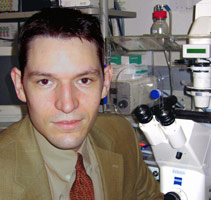 The McGowan Institute for Regenerative Medicine congratulates faculty member Steven Little, PhD, chair of the Department of Chemical and Petroleum Engineering, associate professor, and Bicentennial Alumni Faculty Fellow of the University of Pittsburgh Swanson School of Engineering, as a recipient of the 2013 Chancellor’s Distinguished Teaching Award He was previously selected as the recipient of the Chancellor’s Research Award (junior category). Dr. Little is the first Swanson School of Engineering faculty to win in both of these categories. In the Swanson School, Brian Norman, PhD, also was selected to win a 2013 Chancellor’s Distinguished Teaching Award.
The McGowan Institute for Regenerative Medicine congratulates faculty member Steven Little, PhD, chair of the Department of Chemical and Petroleum Engineering, associate professor, and Bicentennial Alumni Faculty Fellow of the University of Pittsburgh Swanson School of Engineering, as a recipient of the 2013 Chancellor’s Distinguished Teaching Award He was previously selected as the recipient of the Chancellor’s Research Award (junior category). Dr. Little is the first Swanson School of Engineering faculty to win in both of these categories. In the Swanson School, Brian Norman, PhD, also was selected to win a 2013 Chancellor’s Distinguished Teaching Award.
Dr. Little’s award citation from Chancellor Nordenberg reads:
It is my pleasure to inform you that you have been selected to receive a 2013 Chancellor’s Distinguished Teaching Award. The very existence of this award underscores the high institutional priority that we assign to our instructional responsibilities. And your individual efforts stand as an inspiring example of excellence in the role of University teacher.
This award also recognizes your impact on the teaching mission of the Department of Chemical and Petroleum Engineering, of which you now serve as chair. As one of only 14 individuals nationally to be named a 2012 Camille Dreyfus Teacher Scholar and as a Plenary Speaker at the 2012 Beckman Scholars Symposium, your positive influence on the undergraduate learning experiences of your students is evident. Your excellent student evaluations, including those given in one of the most challenging courses of the chemical engineering major, make clear that your students have greatly benefited from your commitment to teaching. You provide valuable research opportunities in your laboratory for 10 to 15 undergraduate students, and as a result, many of your students win local and national honors for their work. The University is proud to reward your many contributions to excellence in teaching with this award.
On behalf of the University and the many students who have benefited from their interactions with you, let me express deep gratitude for your dedication and hard work. Your outstanding record of teaching accomplishment adds to the distinction of the University of Pittsburgh. Speaking more personally, and as a past recipient of this award, let me extend warm congratulations. Your efforts honor the title of “teacher,” and I am pleased to play a part in recognizing those efforts in this tangible and visible way.
The Chancellor’s Distinguished Teaching Award recognizes teaching excellence by members of the University of Pittsburgh’s faculty. Up to five awardees may be chosen annually. Each award consists of a cash prize to the faculty member of $2,000 and a grant of $3,000 to support the faculty member’s teaching activities. All awardees are honored publicly.
Congratulations, Dr. Little!
Dr. Peter Strick Receives Chancellor’s Distinguished Research Award
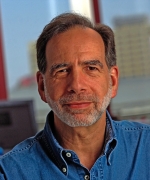 McGowan Institute for Regenerative Medicine affiliated faculty member Peter Strick, PhD, Distinguished Professor and chair of the School of Medicine’s Department of Neurobiology, also professor in the Department of Psychiatry, and co-director of the Center for Neuroscience and the Center for the Neural Basis of Cognition, received the Chancellor’s Distinguished Research Award which annually recognizes outstanding scholarly accomplishments of members of the University’s faculty. Any tenured or tenure-stream, full-time faculty member who has served at least 3 years at Pitt is eligible. Senior scholar awardees include faculty members who have achieved pre-eminence in their field and have compiled a substantial and continuing record of outstanding research and scholarly activity.
McGowan Institute for Regenerative Medicine affiliated faculty member Peter Strick, PhD, Distinguished Professor and chair of the School of Medicine’s Department of Neurobiology, also professor in the Department of Psychiatry, and co-director of the Center for Neuroscience and the Center for the Neural Basis of Cognition, received the Chancellor’s Distinguished Research Award which annually recognizes outstanding scholarly accomplishments of members of the University’s faculty. Any tenured or tenure-stream, full-time faculty member who has served at least 3 years at Pitt is eligible. Senior scholar awardees include faculty members who have achieved pre-eminence in their field and have compiled a substantial and continuing record of outstanding research and scholarly activity.
In his citation, the Chancellor noted Dr. Strick’s recent election to the National Academy of Sciences and his membership in the American Academy of Arts and Sciences, and cited Strick’s international recognition for studies of the motor system of the brain.
The Chancellor wrote: “The selection committee was deeply impressed with the work you have done that has shed light on the fundamental neural circuitry underlying motor controls, which has opened up entire new subfields of study of the brain.”
Dr. Nordenberg cited Dr. Strick’s leadership, which also includes being director of the Systems Neuroscience Institute, director of the Neuroscience Imaging Center, and scientific director of the University of Pittsburgh Brain Institute.
Dr. Krzysztof Matyjaszewski to Receive Inaugural AkzoNobel North America Science Award
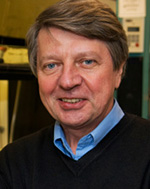 Krzysztof Matyjaszewski, PhD, the J.C. Warner Professor of the Natural Sciences at Carnegie Mellon University’s (CMU) Mellon College of Science and a McGowan Institute for Regenerative Medicine affiliated faculty member, has been named the first recipient of the AkzoNobel North America Science Award for his cutting-edge polymer chemistry research. The award is given by AkzoNobel, the world’s largest paints and coatings company, and the American Chemical Society (ACS), the world’s largest scientific society.
Krzysztof Matyjaszewski, PhD, the J.C. Warner Professor of the Natural Sciences at Carnegie Mellon University’s (CMU) Mellon College of Science and a McGowan Institute for Regenerative Medicine affiliated faculty member, has been named the first recipient of the AkzoNobel North America Science Award for his cutting-edge polymer chemistry research. The award is given by AkzoNobel, the world’s largest paints and coatings company, and the American Chemical Society (ACS), the world’s largest scientific society.
The AkzoNobel North America Science Award was created to recognize outstanding scientific contributions by an individual in the fields of chemistry and materials research conducted in the U.S. or Canada. The AkzoNobel Science Award was first presented in the Netherlands in 1970 and then extended to Sweden (1999), China (2010), and the U.K. (2012).
AkzoNobel established the North America award in 2012 in collaboration with ACS to recognize individuals helping to create a more sustainable future through scientific research. The company has a deep commitment to sustainability and has integrated it into every area of its business.
“We have honored individuals for their innovative contributions to scientific research for more than 40 years with the AkzoNobel Science Award,” said Graeme Armstrong, executive committee member for Research, Development and Innovation for AkzoNobel. “We are privileged to recognize Professor Matyjaszewski and will continue to acknowledge those who are undertaking big, innovative research that can deliver tomorrow’s answers today.”
From his discovery of atom radical transfer polymerization (ATRP), an innovative process for constructing macromolecules, to educating students and industrial scientists on the new procedures for polymeric material development, Dr. Matyjaszewski dedicates his efforts to delivering leading-edge research that will help advance the field of polymer chemistry. Polymer chemistry, also known as macromolecular chemistry, is the area of chemistry that generates advances in everyday products and materials such as building materials, furniture, paints, and plastics.
Dr. Matyjaszewski will receive a $75,000 cash award and certificate of recognition. He will be officially honored for his achievements at the ACS 245th National Meeting and Exposition, being held April 7-11 in New Orleans.
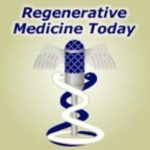 Regenerative Medicine Podcast Update
Regenerative Medicine Podcast Update
The Regenerative Medicine Podcasts remain a popular web destination. Informative and entertaining, these are the most recent interviews:
#118 –– Dr. Stephen Badylak is a Professor in the Department of Surgery, a deputy director of the McGowan Institute for Regenerative Medicine (MIRM), and Director of the Center for Pre-Clinical Tissue Engineering within the Institute. Along with Sgt. Ronald Strang, Dr. Badylak discusses an upcoming clinical trial involving muscle loss due to severe trauma.
Visit www.regenerativemedicinetoday.com to keep abreast of the new interviews.
